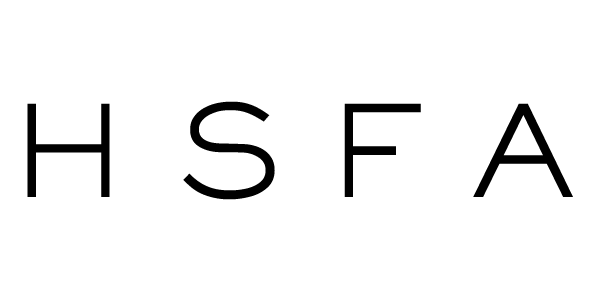Don Edler: Devil You Know
January 10 - 24, 2021
Hunter Shaw Fine Art is pleased to present Devil You Know (2020) by Don Edler, the artist’s second feature-length video. Devil You Know will be screening on www.huntershawfineart.com January 10 - 24, 2021. Through a hybrid of political satire, experimental documentary, and speculative horror, Devil You Know reflects the dangerous absurdity of the contemporary American media environment. Equal parts video essay, staged interviews, and found footage collage, Devil You Know highlights the inherent biases underlying the aesthetics of credibility - and the credibility of aesthetics - in the post-truth media landscape.
Devil You Know is based on a script Edler co-wrote with GPT-3, an advanced deep learning-based language model developed by OpenAI. Popularly referred to as “Artificial Intelligence”, GPT-3 is known for it’s uncanny ability to generate believable natural language. To develop the shooting script, Edler fed the model prompts and content derived from an extended period of immersive research into the highly-biased information environments of radical online political spaces. This experiment was intended to exploit some of the biases within the AI’s knowledgebase in order to identify and extrapolate underlying normative, ideological qualities within the extreme input text. As a result of this process, the generated script, and ultimately the video itself both reflect the hypermediated ideological macro-culture of American Capitalism. While GPT-3 does not have a political agenda per se, it has assimilated the biases of the vast datasets on which it was trained. One example of this is the anti-Russian sentiment prevalent in the texts generated by the AI. Edler did not explicitly or implicitly direct this sentiment, but it’s repeated appearance suggests that Russophobia may be a dominant bias in the datasets GPT-3 learned from. In Edler’s experiment, the extreme input returned language that was passionate and politically charged in rhetoric, yet ambiguous in position and elusive in meaning: the type of pseudo-intellectual word salad that would not be out of place on AM talk radio, in a DIY conspiracy theory documentary, or an overly-complex press release.
The GPT-3 texts were adapted to screenplay format and interpreted by professional actors and Amazon Polly text-to-voice speech synthesis. These performances expose the presumed credibility of “nonfiction” aesthetics. Sampling from a wide variety of formal tropes, Edler investigates the authority and validity ascribed to nonfiction archetypes such as the bespectacled expert, the YouTube influencer poet, the corporate news anchor, and the posh-accented voiceover. These representations are further complicated by the influence of race, gender, class, affect, and character upon the messaging and politics of images, articulated here through Edler’s casting and art direction, and equally through the stylistic choices of the performers.
Devil You Know declares its own artifice from the first frame and repeatedly reminds the viewer that they are watching a performance - or more precisely - a document of a performance. There is no solid footing here. Edler drops the viewer into a disorienting freefall through unreliable narrators and unreliable perspectives cloaked in the semiotics of authority. The subjectivity of image is further exploited through the video’s stylized editing and graphic layering of text and image. These elements come together to create an overall meta-narrative around contemporary time-based media, and the structural factors that influence how it functions in the mind of the viewer. This shifting kaleidoscope of fractured subjectivities is ultimately incoherent, creating a cognitive dissonance which grows in magnitude as the video unfolds. Eventually this distrust crystalizes into a lens through which the viewer may examine their own subjectivities, biases, and worldviews continually throughout the process of viewing the work.
Devil You Know delivers a potent form of psychological horror through its subversive play with verisimilitude. The inclusion of several “deepfake” videos casts a shadow of doubt over the entire work, and point to deeper, more sinister fabrications: the manufacture of consent which permeates our culture at every level, assisted by the machinery of technocapitalism. The video comes to a crescendo in a sequence narrated by Amazon Polly, explaining pareidolia - “the tendency for incorrect perception of a stimulus as an object, pattern or meaning known to the observer, such as seeing shapes in clouds, seeing faces in inanimate objects or abstract patterns, or hearing hidden messages in music.” At this point the viewer may recognize how the video itself has engaged their own pareidolic tendencies, seeking patterns within the chaos presented thus far. Devil You Know is a shattered reflection of ideology - myriad adjacent fragments none of which, nor the sum of which, produce an accurate representation of the whole. The effect is both chilling and absurd as information becomes abstracted and the lines between fact, fiction, opinion and propaganda are blurred, distorted or erased entirely, leaving the viewer to question their own biases, and the credibility of their influences.
Don Edler was born in Bremen, Germany and lives and works in Los Angeles, CA. Edler attended the Skowhegan School of Painting and Sculpture, and received an MFA in Studio Art from New York University, as well as a BFA in Sculpture from University of Florida. Recent solo and two person exhibitions include Two Minutes To Midnight, Hunter Shaw Fine Art, Los Angeles (2019); 6871 California Ave, Five Car Garage, Los Angeles (2018); The Father The Sun and The Holy Road, San Diego Art Institute, San Diego CA (2016); COBRA DESTROYER, Central Park Gallery, Los Angeles CA (2016). Recent group exhibitions include XX:XX, Hunter Shaw Fine Art, Los Angeles (2020); Ecoshamanism curated by Ian James, Leroy’s Happy Place, Los Angeles CA (2018); Mile To Mile, Roger’s Office, Los Angeles CA (2018); To Have or To Be, Ochi Projects, Los Angeles CA (2018); Corpus Alienum, Hunter Shaw Fine Art, Los Angeles CA (2017); The Useful and The Decorative, The Landing, Los Angeles CA (2017); Memory Room curated by Andrew Ross, Outpost Artist Resources, Queens, NY (2016). Don Edler is also the founder and curator of ELEVATOR MONDAYS, a social exhibition space in Los Angeles founded in 2017.
